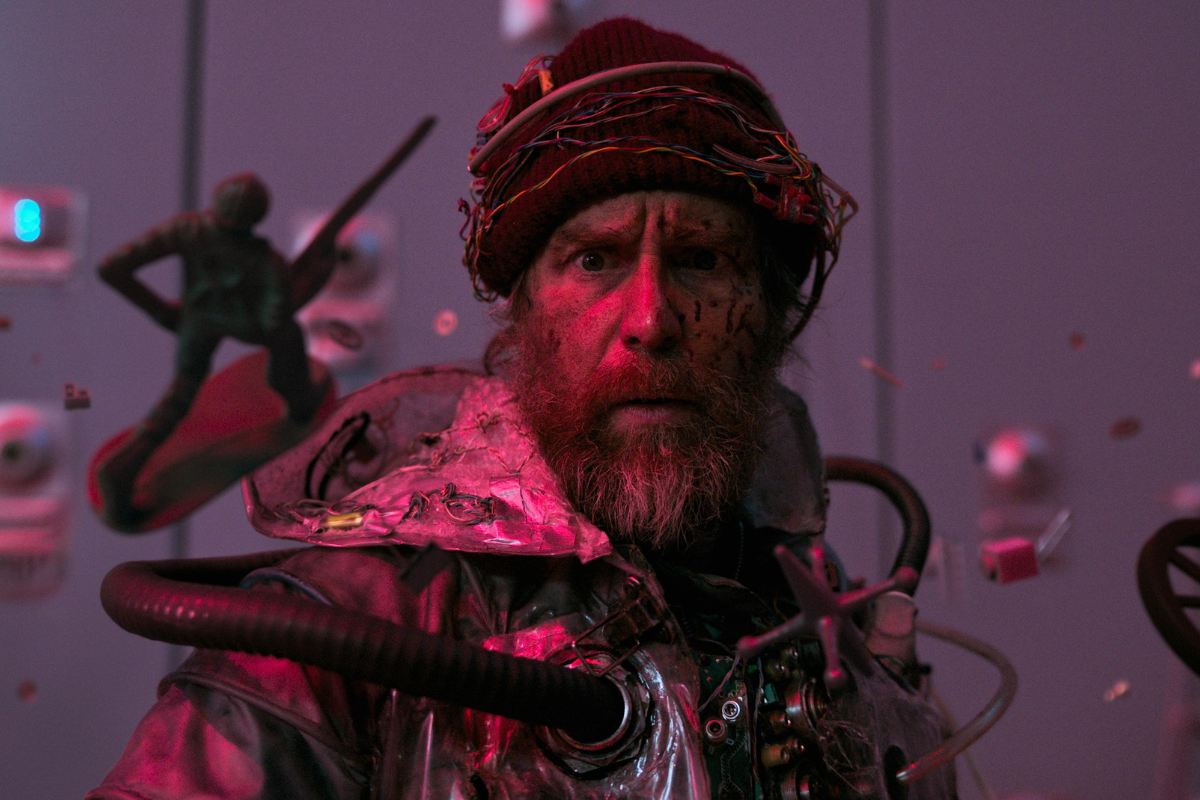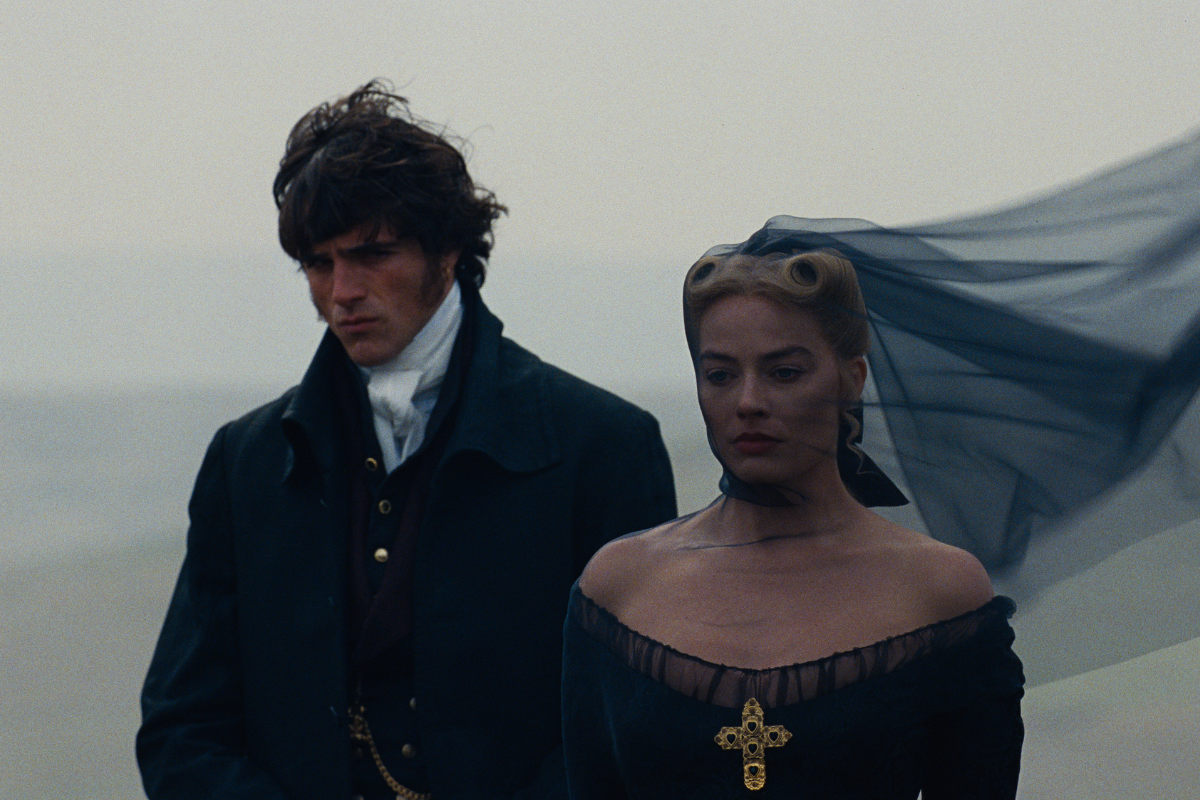Review of ‘Annette’—Just Because Something Is Happening Doesn’t Mean It’s Compelling
Script contributor Joy Cheriel Brown reviews 2021 musical ‘Annette’ and why the film didn’t hit the right notes in a fully formed and warranted storyline.
I made a YouTube video last year where I reviewed the movie Annette, which premiered at the 2021 Cannes Film Festival, and was directed by French director, Leos Carax, with a script by Ron Mael and Russell Mael. I didn’t like the movie, but there were many people who disagreed with me. However, I’d like to point out that my dislike of the film is not based solely on personal preference, but what I have been taught for decades about what makes a good film. Let me just say that I thought the directing and cinematography were good—in terms of shot choices and lighting—but the story was severely lacking. Just because something is happening in the story, doesn’t mean that it’s compelling.
An Opposite Tone Than Intended
First of all, the tone of the movie was off. IMDb lists the film under the genres of drama, musical, and romance, but I found myself literally laughing out loud several times. The movie is about the relationship between a famous stand-up comedian named Henry McHenry, played by Adam Driver, and an equally famous opera singer named Ann Defrasnoux, played by Marion Cotillard. Their relationship progresses till they have a little girl who has a special talent—she can sing at an extremely young age. But the funniness doesn’t come from the stand-up routines of Henry McHenry, which we see entirely too much of, in terms of pacing, but from the fact that the little girl is not a little girl at all, but a puppet that reminds me of a cross between Pinocchio and a Chucky doll. It is never quite clear whether the characters in the story actually see a little girl and only we see a doll, but it’s hilarious to see these grown people interacting with a puppet in such a serious and sincere manner. What makes something funny is to give someone something unexpected, and the absurdity of the actors interacting with a puppet under the pretense that it’s a real girl is simply all too comical.
Songs That Lack Innovation
Before I go on to discuss the initial point that I brought up about conflict, and what actually makes that conflict compelling or not, I want to take a brief detour and discuss the songs. I have not yet mentioned that this is a musical. There is very little, if any, straight dialogue. Everything is sung, but they aren’t the kind of songs you really want to listen to over and over again, like in Hamilton. In Hamilton, the songs are magical—they have such clever lyrics, catchy melodies, complex musical structure, and rhythm. None of that is found here in the songs of Annette, which were written by Ron Mael and Russell Mael, who are the band Sparks. The songs are extremely repetitive and don’t consist of individually recognizable melodies from song to song. There are no tunes here that will be stuck in your head afterwards, except for maybe the opening number, but for people who don’t particularly care for musicals, maybe that’s a good thing.
No Conflict or Meaningful Stakes
Now, on to my principle argument. Just because something is happening, doesn’t mean that it is true conflict. Conflict comes from either the opposition of two opposing forces, or I’ve even heard it explained as two people wanting the same thing that they both can’t have. The way the story of Annette goes, Henry and Ann have a beautiful relationship that leads to a stronger commitment, Ann gets pregnant and has Annette, and then while on their yacht one day, Henry kills Ann. Henry is definitely a morose type of fellow, but nowhere is it suggested that he’s violent, other than a dream that Ann has of women coming forward to accuse Henry of bad behavior. Since this comes from a dream, there is actually no real evidence that Henry is violent. Also, because it’s only a dream, the stakes definitely aren’t high enough for anyone to really care. Even when he throws Ann overboard, he’s drunk when he does it.
The other missed opportunity for real conflict is when the accompanist, played by Simon Helberg, who has a fling with Ann, professes that he should have displayed his love for her more when she was alive. But this fling comes before Henry and Ann even get together—where is the conflict in that? And again, it makes the stakes incredibly low.
Finally, when Henry discovers that Annette can sing, which sounds more like what the sirens in Greek mythology sounded like—siren like sounds— not real singing, and he and the accompanist, who has now become the conductor (I don’t know why he wasn’t given an actual name), take Annette on a world tour to display her talent (this whole scenario is likely why the child is portrayed by a puppet until the last scene of the film, because Henry is using her for financial gain, which then switches to child actor, Devyn McDowell, who gives a stunning performance), but there is no conflict with the tour—no obstacles to overcome. If Ann had stayed alive, perhaps there could have been conflict over Henry wanting to take Annette on tour, and Ann not wanting to expose her to that kind of life, but there’s nothing.
In the End, None of It Matters Anyway
With all that said, there were still people who told me that they loved the film, which is their right to like what they like. At the end of the day, it doesn’t matter whether the film was well-written or not, as long as there’s an audience for it. And with over 7 billion people on Earth, there isn’t anything that can’t find an audience.
Learn more about the craft and business of screenwriting from our Script University courses!
Beyond writing and producing original works—like the short, N.O.S. (now available on Amazon Prime)— for her production company, Third Person Omniscient Productions, Joy Cheriel Brown has also served as a screenwriting mentor for the DC Shorts Filmmaking Mentor Series and as a panelist for the screenwriting panel at the Prince George’s Arts and Humanities Council’s Festival of Literary Arts. In addition to writing for Script Magazine, she also writes for other media outlets. She is also the author of The Secret of Life Through Screenwriting: How To Use the Law of Attraction to Structure Your Screenplay, Create Characters, and Find Meaning in Your Script You can follow her on Twitter and Instagram @JoyCheriel.







